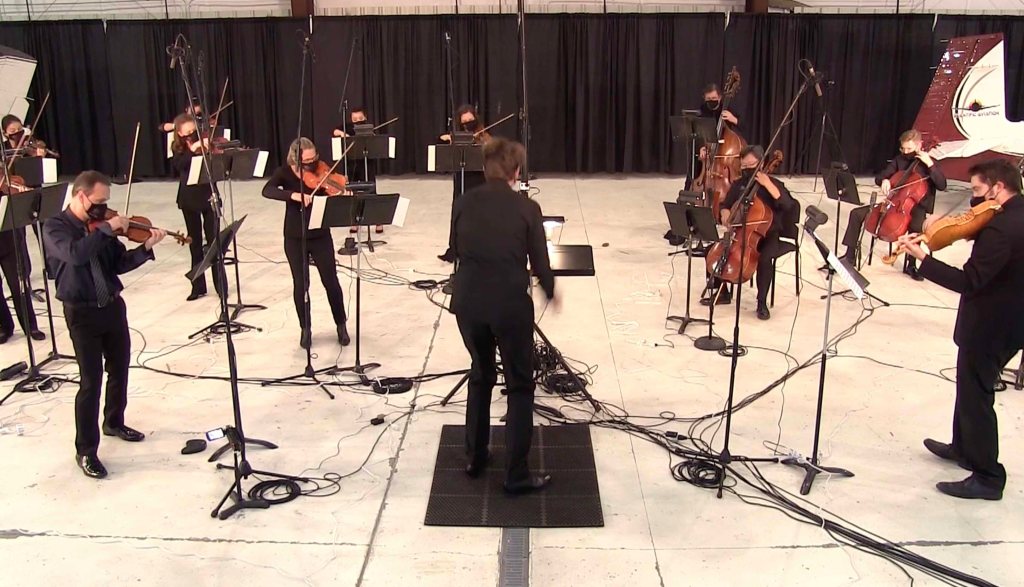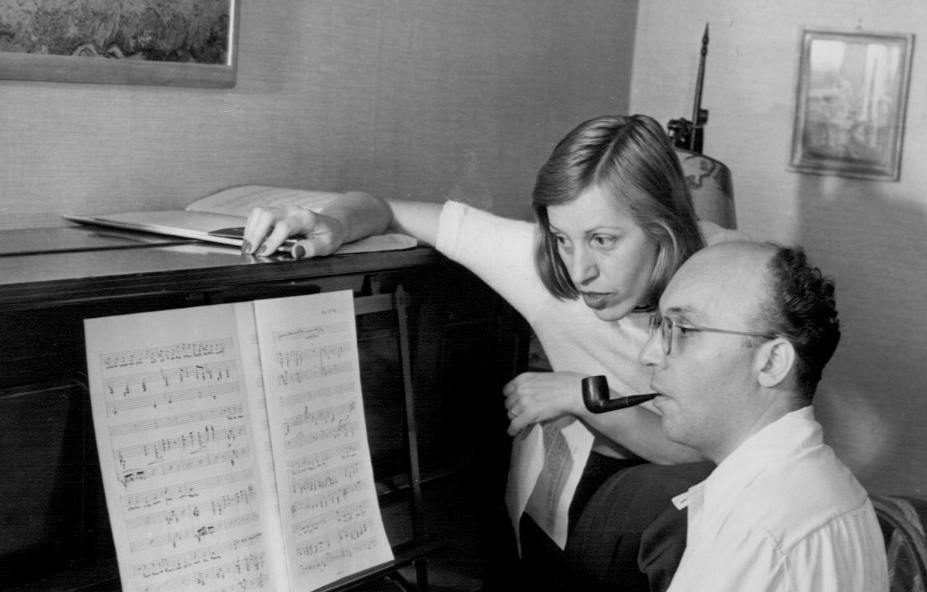Performances at Mountain View Methodist will be played without intermission
By Peter Alexander Sept. 29 at 3:40 p.m.
The Boulder Philharmonic Orchestra will be “together again,” as their first in-person concert since the pandemic is titled.
Two concerts for a reduced orchestra have been scheduled for October, both in the intimate Mountain View United Methodist Church in Boulder. Concerts in Macky Auditorium are scheduled to resume in 2022.
The two October concerts will be “Together Again” at 4 p.m Sunday, Oct. 3, featuring music by Haydn and the Swiss composer Frank Martin; and “The Art of Jazz” at 4 p.m. Sunday, Oct. 30, featuring music of Shostakovich, Darius Milhaud and Kurt Weill. (Full programs are listed below.) Tickets for both concerts may be purchased at the Boulder Phil Webpage.
For safety reasons, both programs will be approximately one hour in length and will be played without intermission. In keeping with current COVID protocols in Boulder County, everyone attending these performances must be fully vaccinated, and must wear masks at all times. Consequently, children under the age of 12 cannot be admitted.
The Boulder Philharmonic’s COVID-19 Health & Safety protocols are listed here.
The first October concert, “Together Again,” features intriguing but little known works for small orchestra. Haydn’s Symphony No. 1 in D major was written in 1759 for Karl Joseph Count Morzin, a member of the Austrian nobility, before Haydn went to work for his better known employer Count Esterhazy. The symphony has three movements and lasts only about 12 minutes, making it a miniature precursor of the larger form that Haydn subsequently established over this career.
The other two pieces on the program are sinfonias concertante, works similar to concertos with multiple soloists. The Sinfonia Concertante by Haydn, composed in London in 1792, features two soprano-bass instrument pairs: violin and cello, oboe and bassoon. Written on short notice near the end of Haydn’s first visit to London, the score treats the soloists as chamber musicians more than virtuoso soloists, and was a hit with English audiences.
The second such work on the program is Martin’s Petite symphonie concertante (little sinfonia concertante). Composed at the end of World War II, it is scored for double string orchestra and a solo group that loosely corresponds to the Baroque continuo: harpsichord, piano and harp. This unusual combination creates a unique sound world that Boulder Phil music director Michael Butterman describes as “Bach and Stravinsky meet the Addams Family.”
The second concert in October, “The Art of Jazz,” shifts gears fully into the 20th century for three pieces by European composers that reflect, in different ways, the world-wide influence of American jazz. The least serious jazz influence is heard in the Jazz Suite No. 1 by Shostakovich, written in 1934 for a Leningrad dance band. The light and tuneful score, with a waltz, a polka and a foxtrot, is as much central European as jazzy, likely because at the time genuine jazz was either unknown or forbidden in the Soviet Union.
However, French composer Darius Milhaud was certainly exposed to authentic jazz, during a 1922 trip to the United States that took him into Harlem nightclubs. A year later he wrote a ballet for the modernist Swedish dance company Ballets Suédois titled La Création du monde (The creation of the world) in which he refracted the jazz he had heard in Harlem through his own very French sensibility to create a work that is sui generis.
Milhaud was especially impressed with the jazz drummers he heard, playing what he called “a complicated percussion section played by just one man.” He includes a full drum set in the score of Création du monde, as well as a saxophone that takes the place of viola in a string quartet and at times emerges as a soloist. Other echoes of Harlem can be heard in the brass-heavy scoring and the writing for clarinet, string bass and trombone.
The final piece on the program refracts American jazz through the decadent cabaret scene in Berlin during the 1920s. Kurt Weill’s Dreigroschenoper (Threepenny Opera), a free translation into German by Marxist playwright Bertolt Brecht of the 18th-century Beggar’s Opera, was premiered in 1928. By the time it was banned by the Nazis in 1933, it had been translated in 18 languages and had been performed at least 10,000 times in Europe.
Weill’s music for the Dreigroschenoper was written for a small pit band of doubling players, much like modern Broadway shows. Weill easily made a transition to Broadway when the rise of the Nazis forced him to leave Germany. Among his subsequent American theatrical hits was the posthumous 1956 off-Broadway production of The Threepenny Opera, which earned a Tony Award for the singer Lotte Lenya. Songs from that version, including “Mack the Knife” and “Pirate Jenny,” became well known in the United States through numerous pop covers.
The orchestral suite from the original show, Little Threepenny Music, was compiled in 1929, capturing the acerbic sound of Weill’s music without the bitter cynicism of Brecht’s lyrics.
# # # # #
Boulder Philharmonic Orchestra
Michael Butterman, music director
Together again
4 p.m. Sunday, Oct. 3
Featuring soloists from the orchestra
- HAYDN Symphony No. 1 in D Major
- HAYDN Sinfonia concertante in B-flat Major
- MARTIN Petite symphonie concertante, Op. 54
The Art of Jazz
4 p.m. Saturday, Oct. 30
- SHOSTAKOVICH Jazz Suite No. 1
- MILHAUD The Creation of the World, Op. 81a
- WEILL Little Threepenny Music
Bother performances at Mountain View United Methodist Church
355 Ponca Place, Boulder
NOTE: The second concert listing was corrected 10/28. Oct. 30 is Saturday, not Sunday.




One thought on “Boulder Phil “together again” for two short concerts in October”